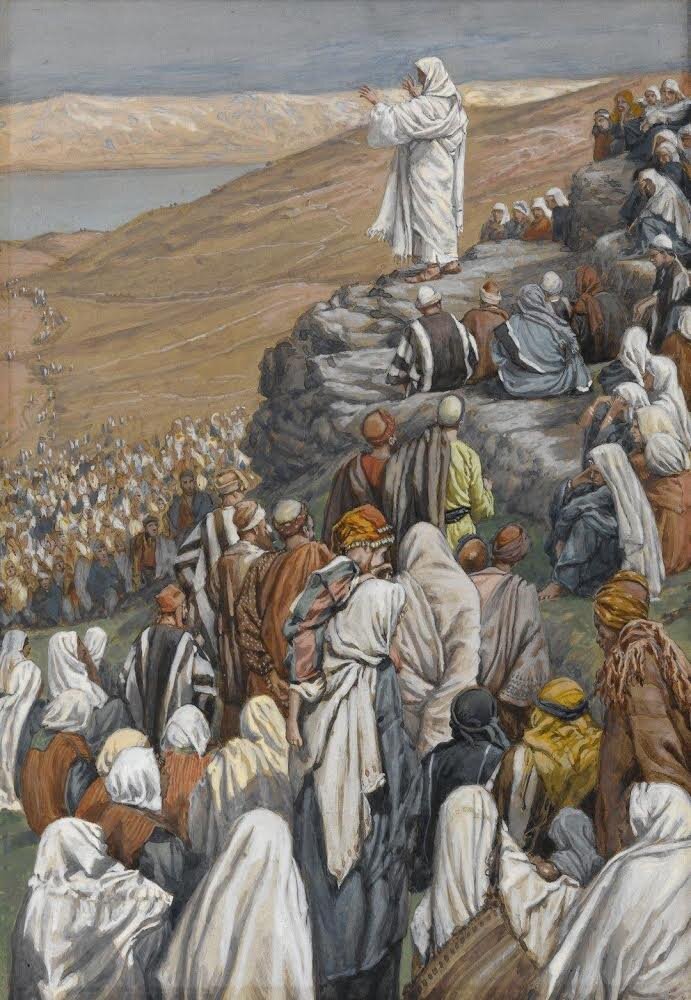Stop judging, that you may not be judged.
Anselm Grün in one of his books, presenting the spirituality of the desert fathers, quotes various dialogues of these wise men. Among other things, he writes the following: “A brother asked a patriarch, why exactly do I judge my brothers so often? He replied: Because you do not know yourself yet. For whoever knows himself does not see the mistakes of his neighbors". And the author continues: “Judging others always means that we haven't met ourselves yet”. Hence, pious people who are indignant at others have not yet learned the truth about themselves. Piety had not yet confronted them with themselves and their own sins. For, as the abba Moses says: “Whoever carries the burden of his sins, does not look at the sins of his neighbor”. Refraining from judging others is for monks not only a criterion for genuine asceticism, but also a way to find inner peace. If we stop condemning others, it will do us good. Abba Poemen was once asked by a brother: What shall I do, Father, when I am filled with sorrow? The old man replied: Do not consider anyone as nobody, condemn and defame no one, and the Lord will give you peace. "
Whenever I read the Gospel assigned for today, the words that I read somewhere come to my mind. I do not even remember who the author is, but they are forever deeply in my memory. Whenever I try to become an enumerator of someone else's conscience, or try to put on me a judge's toga, these words set off an alarm in my soul and say to my aspirations: "stop!" The sentence is: "For God, have a child's heart, for men, have a mother's heart, have a judge's heart for yourself."
Today's fragment of the Sermon on the Mount, in which Jesus’ addressees all His disciples, and therefore also us, points to prudence and moderation in judging and passing judgments. "Stop judging, that you may not be judged. For as you judge, so will you be judged" advises Jesus. Warning against Pharisaic hypocrisy he says: "Why do you notice the splinter in your brother’s eye, but do not perceive the wooden beam in your own eye? (...) You hypocrite, remove the wooden beam from your eye first; then you will see clearly to remove the splinter from your brother’s eye. "
A small distinction needs to be made at this point; for it is one thing to judge, pass judgment and condemnation, and quite another to evaluate. The evaluation/assessment is often necessary, because it allows to distinguish good from bad, "worse" from "better", "more important" than "unimportant". It allows both us and other people to develop and go in the right direction. Thanks to the ability to evaluation/assessment, it will be easier for us to change our own attitude or help our neighbor to grow.
But it must be remembered that what should distinguish an attitude of evaluation/assessment from judgment condemned by Christ is precisely our motive and the way in which we try to help someone get rid of the stubborn "splinter" in his eye. What we should follow in our assessment is always the good of our neighbor, and the way to evaluate free from hypocrisy, is to practice love and mercy towards others and to look truthfully at our own deeds. Jesus does not forbid us to remove the painful "splinter" from our brother's eye but exhorts us first to remove the "log" from our own eye. In fact, the point is that our judgment should never run out of love.
The Lord Jesus tells us another truth in this sentence about a beam in an eye and a splinter. Namely, only when I try to clean my own eye, will I have a chance that my reaction to the evil of my neighbor will be effective. " Then you will see clearly, says the Lord Jesus, to remove the splinter from your brother’s eye."
And one more thing; the word of our Lord Jesus: " Stop judging, that you may not be judged." Very often criticizing others is a method of whitening ourselves. By using this method, we can go so far that we also criticize people who are far better than we. What is more, we criticize them for their merits. And even more: not wanting to see our own sins, we are able to accuse God himself for having wrongly arranged our world.
"If you want to convert, look at how Christians live" - said St. Augustine to the pagans of his time. Would any of the pagans of today be converted if we told themto see how we live? Is our life not too often a betrayal of what we believe and preach? "If the good were better, the bad ones would be less," one woman wrote.
"Hypocrite, first cast the log out of your eye ...". For those who see well of others' mistakes and even offer their help in correcting their neighbor, Christ recommends that they begin their work from their own eye. Only when we correct our own mistakes will we be able to help others. The blind cannot lead the blind, but we, despite everything, try to do so.
Until Tomorrow
fr. george


